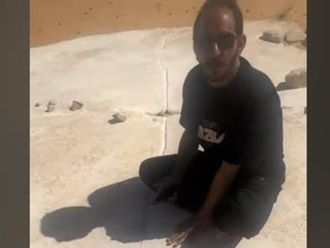Karachi: Sindh Governor Mohammad Zubair on Friday refused to endorse an accountability law, passed by the provincial assembly recently amid opposition protest, saying the new law was against the public interest.
The Pakistan Peoples Party (PPP) government in Sindh had decided to bring about the amendments in the National Accountability Bureau (NAB) law so as to exclude Islamabad’s say in the law.
The party, which enjoys majority in the Sindh provincial assembly, tabled the bill early this month and got it through despite intensive ‘nay’ by the opposition parties.
The NAB Ordinance 1999 Repeal Bill 2017 was presented by the PPP law minister Zia Lanjar, seeking amendments in the law to exempt provincial departments and autonomous bodies of the federal NAB jurisdiction.
The leaders of the opposition called the new bill as a ‘black law’ aimed at protecting many a PPP ministers and leaders, who were wanted by the NAB in many corruption cases.
Under the new law the provincial government had to set up a commission to seek accountability of its officials.
Thus all the cases against the provincial legislators and officials would only be recommended to the anti-corruption deparment that falls under the provincial government jurisdiction.
The opposition leader, supporting their position said the PPP itself would be the complainant as well as the judge to its own acts.
The law was passed in haste after the NAB announced it would expand the scope of its investigation against the alleged corruption and irregularities in different departments of Sindh province, especially in Karachi.
The NAB had recently initiated inquiries into Workers Welfare Board and the Revenue Department of Gadap Town, a hub of real estate business where hundreds of housing schemes in private sector were given precious state lands.
The NAB also arrested chief of Benazir Housing Cell who was charged for embzelment of 368 million rupees (Dh12.84 million).
Governor Zubair had sent back the bill to chief minister Syed Murad Ali Shah with the dissenting note saying that elimination of corruption was the responsibility of all and the repeal of the NAB law was thus in contrast with the people interests.











